- Joined
- Jun 3, 2019
- Messages
- 825
- Reaction score
- 1,030
- Points
- 93
Fort Scoveston

Heres one that hasnt been covered for a while, well since 2012 so far as I can see this.
was just a pin on a map Iv had for as long as I can remember so a family trip down that way gave me the opportunity to have a look.


This place had clearly not been frequented & the undergrowth & lack of damage or litter made it a nice place to explore, I know its futile to say but please respect this if you decide to visit.
Heres a early report when the place was considerably clearer Hubberstone and Scoverton Fort Nov 2012 PIC HEAVY


The History
The original recommendation from the commission was to build 6 defensive forts to protect the Haven from attacks from the north. Following a review by government, this was reduced to the site at Scoveston only, which would protect the towns of Milford Haven and Neyland. Construction commenced in 1861 and completed in 1864 at a cost of £45,462. The structure is hexagonal, surrounded by a 36-foot-wide escarpment. It is surrounded by a rampart with a caponier on each corner. The rear face was defended by an earthen bank, and a large traverse was erected across the length of the interior parade ground. Entrance to the fort is via a drawbridge and a tunnel through a small gorg.
[

The fort was designed as a garrison for 128 men, and was designed to have a complement of 32 guns. Cost and the declining requirement for forts in the twentieth century meant that guns were never installed. It was never garrisoned, and was used mainly as a training camp for volunteers and militia. World War I saw increased activity in the fort. In order to protect the dockyards of Milford Haven, Neyland and Pembroke Dock, a complex system of trenches was built in the land surrounding the fort to ward against land based attack. The trench system ran from Waterston to Llangwm.
During World War II, it was used as an air raid shelter by residents of Neyland. It was later used as a warehouse to store munitions in readiness for D-Day. During peacetime, it was left empty, under the care of a single caretaker. It was revealed following his conviction that serial killer John Cooper had visited the fort and had deposited items which he had stolen from nearby properties, and implements he had used to restrain victims.
In August 2005, a local doctor committed suicide close to the fort









Thats all there is to see really, thanks for looking
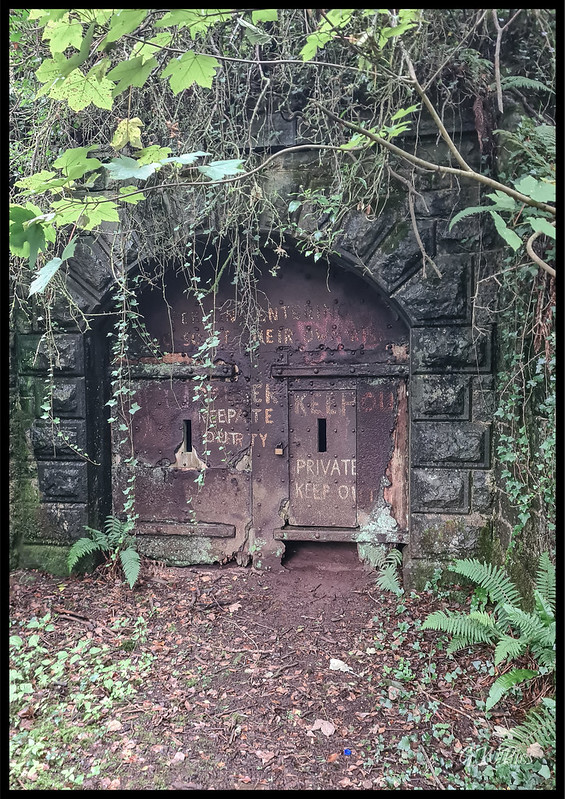
Heres one that hasnt been covered for a while, well since 2012 so far as I can see this.
was just a pin on a map Iv had for as long as I can remember so a family trip down that way gave me the opportunity to have a look.

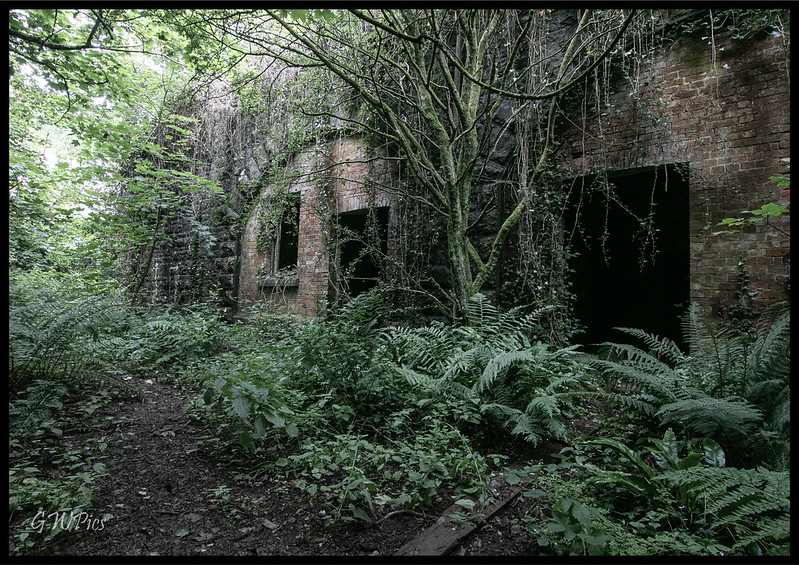
This place had clearly not been frequented & the undergrowth & lack of damage or litter made it a nice place to explore, I know its futile to say but please respect this if you decide to visit.
Heres a early report when the place was considerably clearer Hubberstone and Scoverton Fort Nov 2012 PIC HEAVY

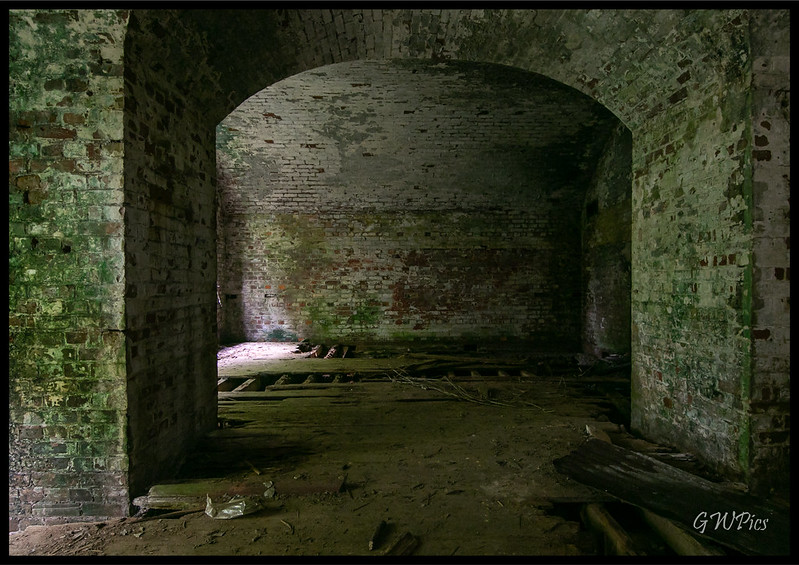
The History
The original recommendation from the commission was to build 6 defensive forts to protect the Haven from attacks from the north. Following a review by government, this was reduced to the site at Scoveston only, which would protect the towns of Milford Haven and Neyland. Construction commenced in 1861 and completed in 1864 at a cost of £45,462. The structure is hexagonal, surrounded by a 36-foot-wide escarpment. It is surrounded by a rampart with a caponier on each corner. The rear face was defended by an earthen bank, and a large traverse was erected across the length of the interior parade ground. Entrance to the fort is via a drawbridge and a tunnel through a small gorg.
[

The fort was designed as a garrison for 128 men, and was designed to have a complement of 32 guns. Cost and the declining requirement for forts in the twentieth century meant that guns were never installed. It was never garrisoned, and was used mainly as a training camp for volunteers and militia. World War I saw increased activity in the fort. In order to protect the dockyards of Milford Haven, Neyland and Pembroke Dock, a complex system of trenches was built in the land surrounding the fort to ward against land based attack. The trench system ran from Waterston to Llangwm.
During World War II, it was used as an air raid shelter by residents of Neyland. It was later used as a warehouse to store munitions in readiness for D-Day. During peacetime, it was left empty, under the care of a single caretaker. It was revealed following his conviction that serial killer John Cooper had visited the fort and had deposited items which he had stolen from nearby properties, and implements he had used to restrain victims.
In August 2005, a local doctor committed suicide close to the fort



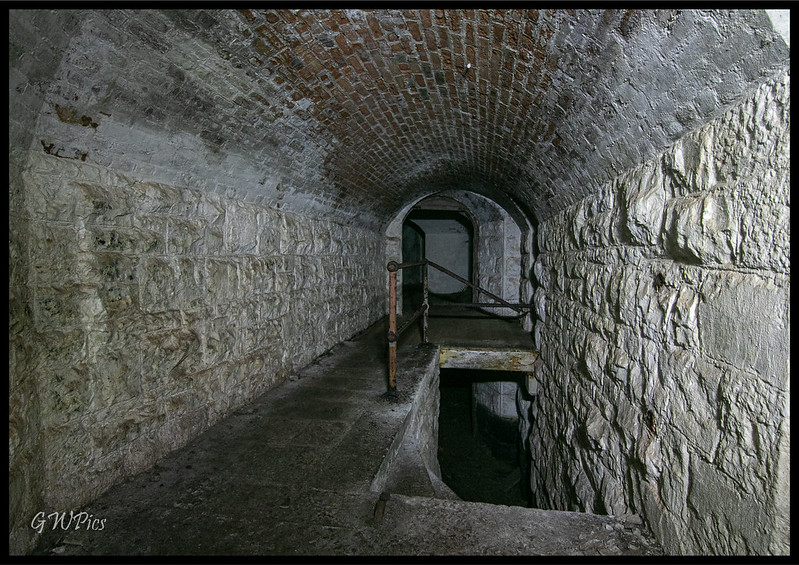
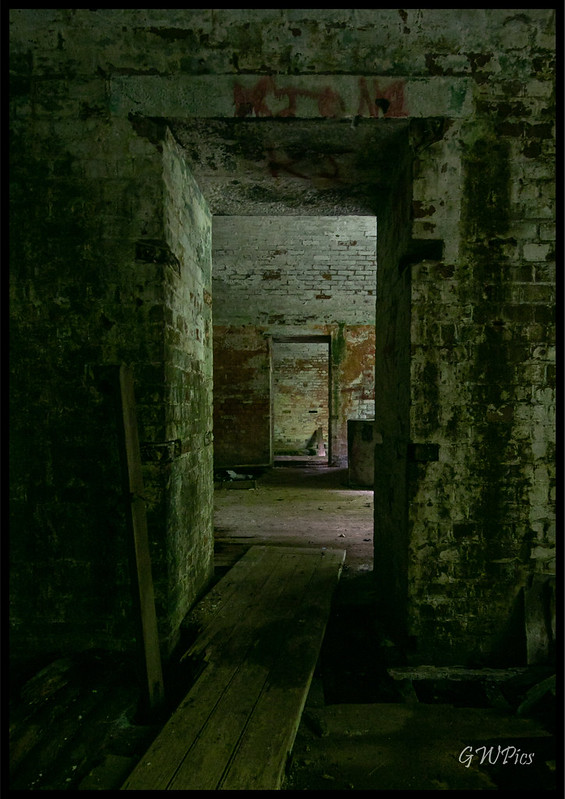



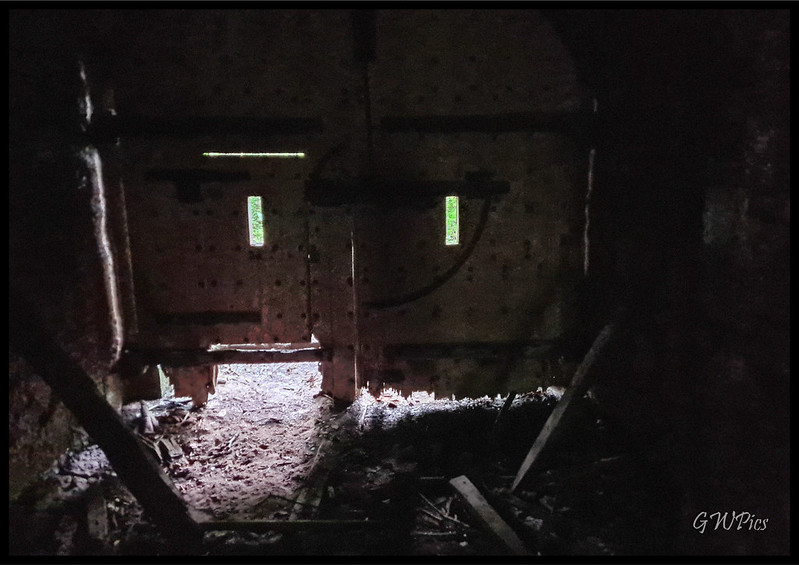
Thats all there is to see really, thanks for looking
Last edited by a moderator:
